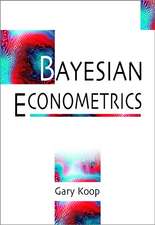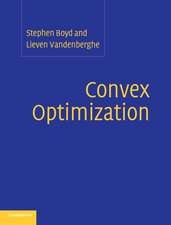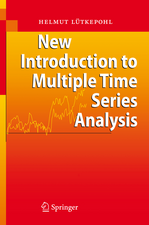Dynamic Programming of Economic Decisions: Ökonometrie und Unternehmensforschung Econometrics and Operations Research, cartea 9
Autor Martin F. Bachen Limba Engleză Paperback – 18 apr 2012
Din seria Ökonometrie und Unternehmensforschung Econometrics and Operations Research
-
 Preț: 390.25 lei
Preț: 390.25 lei -
 Preț: 323.28 lei
Preț: 323.28 lei -
 Preț: 277.11 lei
Preț: 277.11 lei -
 Preț: 482.46 lei
Preț: 482.46 lei -
 Preț: 345.12 lei
Preț: 345.12 lei -
 Preț: 484.69 lei
Preț: 484.69 lei -
 Preț: 279.98 lei
Preț: 279.98 lei -
 Preț: 278.25 lei
Preț: 278.25 lei -
 Preț: 314.21 lei
Preț: 314.21 lei -
 Preț: 426.56 lei
Preț: 426.56 lei -
 Preț: 512.77 lei
Preț: 512.77 lei -
 Preț: 499.11 lei
Preț: 499.11 lei -
 Preț: 378.34 lei
Preț: 378.34 lei -
 Preț: 379.48 lei
Preț: 379.48 lei -
 Preț: 282.32 lei
Preț: 282.32 lei -
 Preț: 379.09 lei
Preț: 379.09 lei -
 Preț: 279.60 lei
Preț: 279.60 lei -
 Preț: 391.02 lei
Preț: 391.02 lei -
 Preț: 390.25 lei
Preț: 390.25 lei
Preț: 380.25 lei
Nou
Puncte Express: 570
Preț estimativ în valută:
72.76€ • 75.97$ • 60.08£
72.76€ • 75.97$ • 60.08£
Carte tipărită la comandă
Livrare economică 15-29 aprilie
Preluare comenzi: 021 569.72.76
Specificații
ISBN-13: 9783642864513
ISBN-10: 3642864511
Pagini: 160
Ilustrații: XII, 144 p.
Dimensiuni: 155 x 235 x 12 mm
Greutate: 0.23 kg
Ediția:Softcover reprint of the original 1st ed. 1968
Editura: Springer Berlin, Heidelberg
Colecția Springer
Seria Ökonometrie und Unternehmensforschung Econometrics and Operations Research
Locul publicării:Berlin, Heidelberg, Germany
ISBN-10: 3642864511
Pagini: 160
Ilustrații: XII, 144 p.
Dimensiuni: 155 x 235 x 12 mm
Greutate: 0.23 kg
Ediția:Softcover reprint of the original 1st ed. 1968
Editura: Springer Berlin, Heidelberg
Colecția Springer
Seria Ökonometrie und Unternehmensforschung Econometrics and Operations Research
Locul publicării:Berlin, Heidelberg, Germany
Public țintă
ResearchCuprins
One. Finite Alternatives.- § 1. Introduction.- § 2. Geometric Interpretation.- § 3. Principle of Optimality.- § 4. Value Functions for Infinite Horizons: Value Iteration.- § 5. Policy Iteration.- § 6. Stability Properties.- § 7. Problems without Discount and with Infinite Horizon.- § 8. Automobile Replacement.- § 9. Linear Programming and Dynamic Programming.- References and Selected Reading to Part One.- Two. Risk.- § 10. Basic Concepts.- § 11. The Value Function.- § 12. The Principle of Optimality.- § 13. Policy Iteration.- § 14. Stability Properties.- § 15. Solution by Linear Programming.- § 16. Machine Care.- § 17. Inventory Control.- § 18. Uncertainty: Adaptive Programming.- § 19. Exponential Weighting.- References and Selected Reading to Part Two.- Three. Continuous Decision Variable.- § 20. An Allocation Problem.- § 21. General Theory.- § 22. Linear Inhomogeneous Problems.- § 23. A Turnpike Theorem.- § 24. Sequential Programming.- § 25. Risk.- § 26. Quadratic Criterion Function.- References and Selected Reading to Part Three.- Four. Decision Processes in Continuous Time.- § 27. Discrete Action.- § 28. Variable Level.- § 29. Risk of Termination.- § 30. Discontinuous Processes—Repetitive Decisions.- § 31. Continuous Time Inventory Control.- § 32. Continuous Action—Steady State Problems.- § 33. The Principle of Optimality in Differential Equation Form.- § 34. Dynamic Programming and the Calculus of Variations.- § 35. Variation under Constraints: The Maximum Principle.- References and Selected Reading to Part Four.- Author Index.















